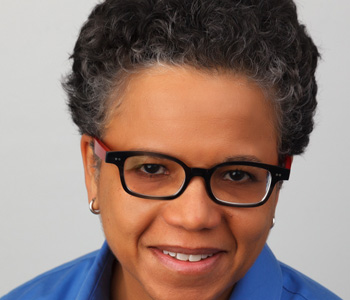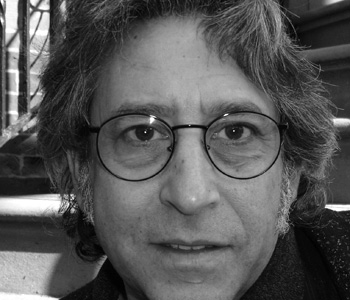Kevin Mattson
“What the Heck Are You Up To, Mr. President?”: Jimmy Carter, America’s “Malaise,” and the Speech that Should Have Changed the Country
Bloomsbury USA
272 pages, 8½ x 6 inches
ISBN 978 1596915213
I want a reader to enter a truly bizarre world: America in 1979.
It was a period of disco and disco demolition, cocaine and divorce, an Iranian revolution and oil embargo plus the Three Mile Island nuclear power crisis. It was a time when intellectuals feared America’s power was in decline to the Middle East and we were becoming a nation of narcissists. It was a time when Americans murdered one another on gas lines. It was a time when the Vietnam War had been over for four years but Americans hadn’t really come to terms with the war’s implications. The first popular movies about Vietnam start to appear at this time—including Coming Home, Deer Hunter, and Apocalypse Now (the latter was actually shown at the White House during 1979, an event I talk about in the book).
I recreate that world of America in 1979 for the reader. And then I place Jimmy Carter into this context and explain how he decided to give one of the toughest speeches in the history of presidential speeches. We still erroneously call it the “malaise speech”—the word “malaise,” in fact, never appeared in it. The speech is at the heart of the book, and it is about the country’s decline, about the energy crisis, and about what Americans can do to pull themselves out of these and to chart a path towards energy independence.
This is a story about one president worrying a great deal about the psychic state of America and wanting to address that problem head-on. Much of the book deals with how Jimmy Carter, pushed by an array of advisors behind the screens, decided to make the speech.

Who are we as a nation: selfish individualists or citizens and members of a commonwealth?
The book addresses broad questions of American national identity. Who are we as a nation: selfish individualists or citizens and members of a commonwealth? Can America be a nation with a sense of humility and “limits” in the face of the emerging crisis in the Middle East—the Iranian revolution and the dawn of Islamic fundamentalism and a resulting oil embargo?
Carter tried to explore these questions by reading numerous social observers from the time. He read Reinhold Niebuhr as well as the writings of Christopher Lasch and Daniel Bell, two leading social theorists who pondered if consumer capitalism destroyed civic virtue. He also went to the heart of one of our most pressing problems—one that still exists today: our over-reliance or dependency on fossil fuels imported from abroad, and how this makes us susceptible to a whole range of problems.
To this question Carter offered a solution that we ignored—I believe, to our peril—when we elected Ronald Reagan president in 1980. Much of the story is about the rise of the conservative revolution during Jimmy Carter’s presidency—the formation of the Moral Majority (Jerry Falwell’s organization), the rise of conservative think tanks, the arguments made by “neoconservatives,” and the increasing popularity of Ronald Reagan.
What led me to want to examine this issue was teaching undergraduates this speech in contemporary history classes. My students were always amazed by the speech’s tough message. So I wanted to explain how Carter came to conclude he needed to give a speech that had so much political risk behind it. I remember quite distinctly one student who said to me, when I taught Carter’s speech during George W. Bush’s presidency: “I wish we had a president who told us difficult truths.” I remember being shocked by that, and inspired. The speech’s story deserved to be told.
On page 149 I start to describe the Disco Demolition rally in Chicago that occurred just a few days before Jimmy Carter gave his speech. The rally is a wonderful portrait of a chaotic America—youth streaming onto a baseball field after thousands of disco records have just been blown up amidst orgiastic chants of “DISCO SUCKS!” The chaos—stoned teenagers setting a baseball field on fire—gives the reader a sense of where America was at the time, chaotic, conflicted, and unruly. But it’s also important because disco was so central to defining 1970s American culture.
Disco had started early in the decade in a marginalized, predominantly African-American and gay urban music scene. By 1979, disco was mainstream and literally everywhere. But there was something about disco, especially in its later and more commercial renditions, that seemed fake and superficial. The kids who chanted “Disco Sucks” weren’t necessarily even aware of what they were doing. But they were showing how fed-up Americans had become with the state of their culture, among other things.
The Disco Demolition Rally gives a nice sense of just how wild things were in America at the time, with murders and riots occurring on the gas lines that were getting longer and longer. 1979 makes you realize that the chaos of the 1960s never really ended; it just turned uglier.

1979 makes you realize that the chaos of the 1960s never really ended; it just turned uglier.
I hope the book helps us re-explore what were the 1970s.
The Carter presidency should not be dismissed as a blip in time before Ronald Reagan assumed power in the 1980s. Carter had a unique vision for America’s role at home and abroad, one worth remembering as our country comes out of a very conservative period in our more recent past. Jimmy Carter’s sense that America must have a sense of humility, a realization that its power is real but also evanescent, is crucial to rethinking what we should be today. So a speech from 1979 becomes, in a way, a chance to reassess a path that we didn’t take but that we can take today.
Clearly the language that Carter used in the speech and the themes that resonated throughout it are still important today. In fact, President Obama’s inaugural address had many similar lines. Obama spoke of a “crisis of confidence” existing in America. He talked about the need to learn some hard truths about the state of our democracy. Like Carter, Obama has a deep interest in the theological teachings of Reinhold Niebuhr—who emphasized that humans are sinful and naturally self-interested. Niebuhr believed that only humility and self-inquisition could potentially prevent us from doing bad things in the world—and even still we’d likely do bad things.
Whereas Ronald Reagan used the language of America as the chosen land—something he shared with the Christian right of Jerry Falwell, and that today Sarah Palin consistently references—Carter projected a vision of America that was humble. Carter thought that America should never think of itself in terms of “chosen” or “blessed” (the oil crisis itself showed that we weren’t). So too does Obama. And I think that a vision of America as humbled by the complexities of the world is a vision that we’re rediscovering today. As a historian, I have tried to write a book that recollects how we once had a leader with that language and how he came to decide to use that language.




We don't put paywalls. We don't distract you with ads. We don't sell your data.
Please help to keep this running!